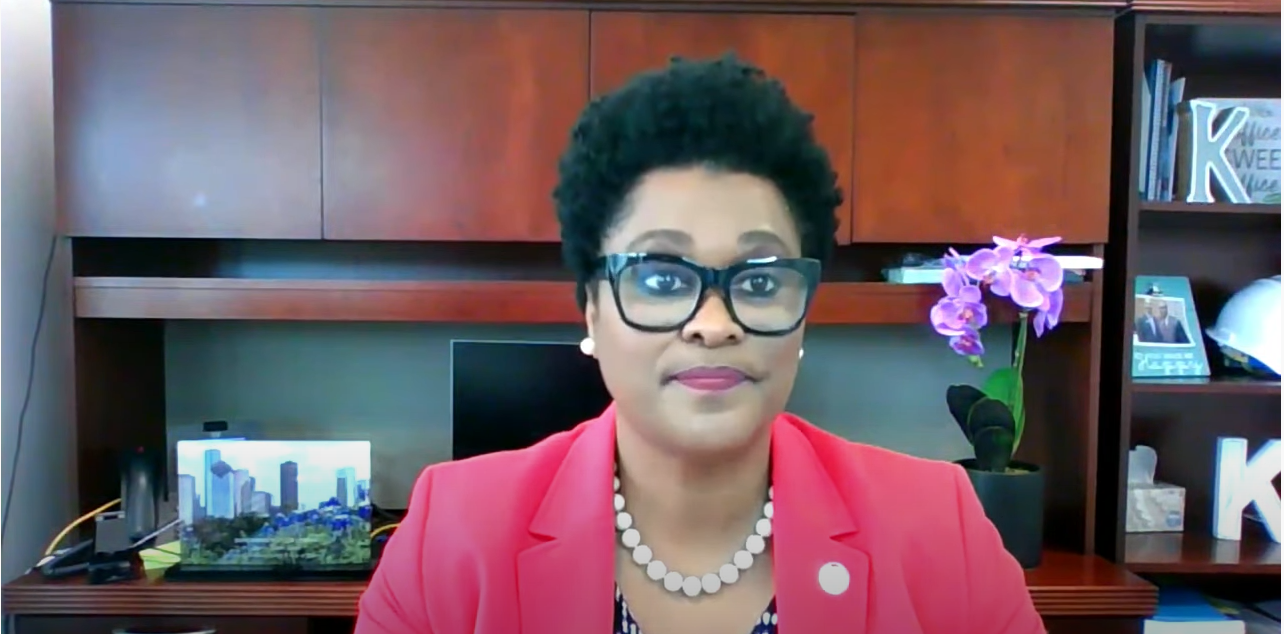WASHINGTON, D.C. — Today, City of Houston Vice Mayor Pro Tempore and Council Member Martha Castex-Tatum testified before the House Transportation and Infrastructure Committee’s Subcommittee on Highways and Transit on behalf of the National League of Cities (NLC), during a hearing on “The Road Ahead for Automated Vehicles.” To watch a recording of Council Member Tatum’s testimony, click here.
Below is an excerpt from Vice Mayor Pro Tem Castex-Tatum’s remarks as delivered:
“Zero is the only acceptable number of deaths on America’s roads. Today, we are losing far too many of our residents to dangerous roads in Houston and across this country, and efforts to reduce fatalities must include every possible strategy, including autonomous vehicles.
Cities handle most aspects of public transportation, and that experience and authority equips us to see both the opportunities and challenges to these new types of transportation. We are aiming to create the right environment of shared, safe, connected AV transportation options that will better serve our residents and meet our goals as a city.
In Houston, piloting the testing of AVs started with our METRO transit agency and their self-driving shuttle at Texas Southern University on their Tiger Walk across campus. They are now expanding their pilots to on-road options between two universities, AV buses, and researching better paratransit options.
My district was one of the first three areas in Houston where Nuro launched zero-occupant AVs for commercial service delivery using lower speeds and smaller, lightweight vehicles. These AVs pull right up to your home and deliver groceries, prescriptions, or hot food from Kroger, Dominos, CVS, and the Houston Food Bank, which has been extremely helpful during COVID when we needed to social distance but also needed our daily necessities.
When Nuro first came to District K, we made arrangements with our local police officers to allow them to see the vehicle, understand how to access it in an emergency, and to ask questions.
As with all AVs, these vehicles must be designed to operate on the roads as they exist today and to interact in the real-world situations.”
NLC provided three recommendations to Congress for federal action that will promote safe AV testing if done correctly as well as grow job opportunities in the U.S.
- Investing in Piloting with Local Governments: America’s cities are open to piloting more technology safely that can make our residents’ lives better, and Congress and the U.S. Department of Transportation can support localized piloting in a new effort to build up strong federal safety guidelines. We need to move forward on piloting this technology, particularly for shared uses and in areas of the country that feel left behind, and USDOT has the authority to act on this today.
- Invest in Ensuring a Skilled, Trained Workforce: Investment in America’s workforce needs to happen at scale and today. In cities, towns, and villages across America, we know that we cannot carry out today’s road, bridge, water and broadband projects funded through the bipartisan infrastructure law without trained, skilled workers – to say nothing of the future demand for new skills sparked by new technologies such as autonomous vehicles. If we do nothing to improve labor market outcomes for infrastructure-related jobs, NLC’s latest study anticipates that the U.S. will struggle to fill at least 4.5 million jobs nationally.
- Raise Planning and Technology Sharing in Regions: America’s transportation foundations shifted underneath our feet during COVID – including travel patterns, land use, freight movement, and more. Anticipating, adapting, and accommodating transportation for these trends is the basis of good transportation planning from our metropolitan planning organizations remains underappreciated in federal programming. Investing in foundational transportation planning, logistics, and technology at the metropolitan and regional levels will serve us in more sustainable and practical ways.
###
The National League of Cities (NLC) is the voice of America’s cities, towns and villages, representing more than 200 million people across the country. NLC works to strengthen local leadership, influence federal policy and drive innovative solutions. Stay connected with NLC on Facebook, Twitter, LinkedIn and Instagram.
